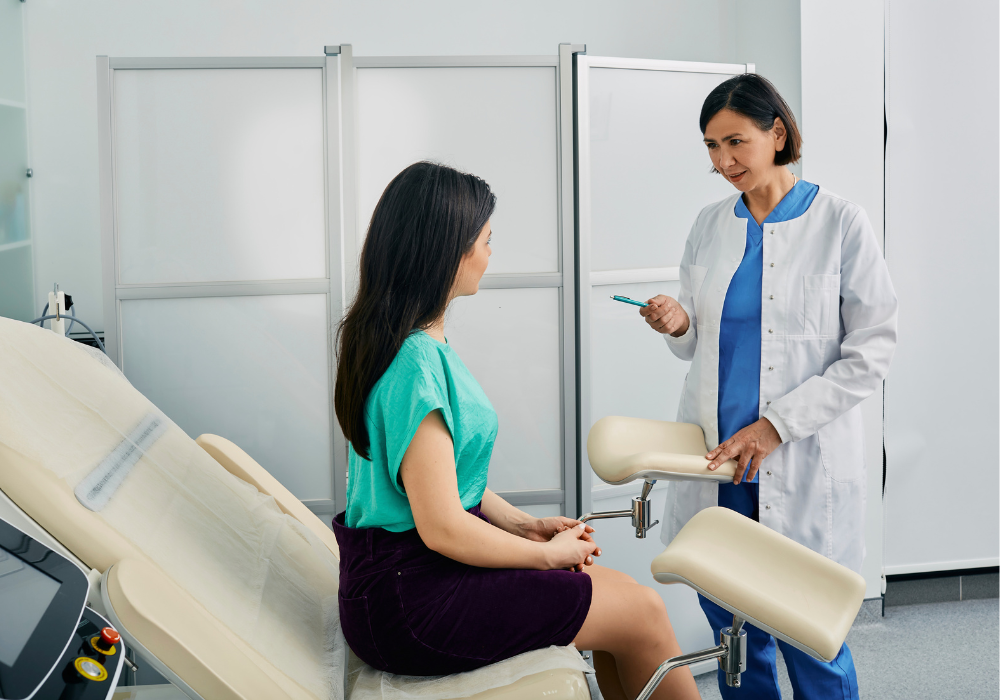Regular gynecological check-ups are essential for maintaining women’s reproductive health and overall well-being. These routine visits allow healthcare providers to detect potential health issues early, provide preventive care, and answer questions about your body and lifestyle. Yet, many women skip or delay these important appointments due to fear, embarrassment, or lack of awareness.
In this article, we’ll explain why regular gynecological check-ups matter, what to expect during your visit, and how these appointments can empower you to take control of your health.
Why Are Regular Gynecological Check-Ups Important?
1. Early Detection of Health Issues
Many gynecological conditions, such as cervical cancer, sexually transmitted infections (STIs), and ovarian cysts, may not show obvious symptoms early on. Regular screenings, like Pap smears and pelvic exams, can catch these issues before they become serious.
2. Preventive Care and Vaccinations
During check-ups, your healthcare provider can offer preventive services including HPV vaccinations, contraceptive advice, and screenings for breast cancer or osteoporosis. Preventing health problems is often easier and less costly than treating them later.
3. Monitoring Menstrual and Reproductive Health
Gynecologists can help manage menstrual irregularities, painful periods, menopause symptoms, fertility concerns, and more. Open communication with your doctor ensures personalized care tailored to your life stage.
4. Promoting Sexual Health and Wellness
Discussing sexual health, safe sex practices, and concerns like pain during intercourse can improve your intimate life and prevent infections or complications.
What to Expect During a Gynecological Check-Up
A typical gynecological visit usually includes:
Medical History Review
Your doctor will ask about your menstrual cycle, sexual activity, contraception, pregnancies, and any symptoms or concerns.
Physical Exam
This may include measuring your weight, blood pressure, and a general health check.
Pelvic Exam
Your doctor will examine your vulva, vagina, cervix, uterus, and ovaries to check for abnormalities.
Pap Smear Test
A sample of cervical cells is collected to screen for cervical cancer or precancerous changes.
Breast Exam
Your doctor may perform a clinical breast exam to detect lumps or other changes.
Additional Tests
Depending on your age and risk factors, your doctor might recommend blood tests, STI screenings, or ultrasounds.
How Often Should You Get Checked?
- Ages 21 to 29: Pap smears every 3 years if results are normal.
- Ages 30 to 65: Pap smear plus HPV test every 5 years, or Pap smear alone every 3 years.
- After 65: Screening may stop if previous results were normal, but consult your doctor.
- Other factors: Women with high risk or specific symptoms may require more frequent visits.
Tips for a Comfortable Visit
- Schedule your appointment when you are not menstruating, if possible.
- Wear comfortable clothing and avoid vaginal products 24 hours before your exam.
- Write down questions or concerns beforehand.
- Bring a trusted friend or family member if it helps ease anxiety.
- Be honest and open with your healthcare provider for the best care.
Conclusion
Regular gynecological check-ups are a cornerstone of women’s health. They provide a proactive approach to detect problems early, offer preventive care, and support your reproductive and sexual wellness. By prioritizing these visits, you invest in a healthier future for yourself.
If it’s been a while since your last visit or you’re nervous about scheduling your first appointment, remember that your gynecologist is there to support and guide you every step of the way.


Leave a Reply